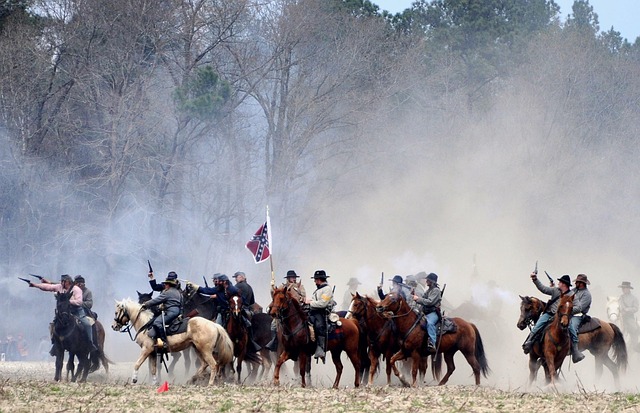Civil liberties are the backbone of any modern democracy. These rights, afforded to individuals by virtue of their citizenship, ensure the freedom and protection necessary for individuals to openly participate in society. Without civil liberties, democracy as we know it could not exist. But what defines these liberties? How did they come to be safeguarded in legal frameworks, and what challenges do they face today?
This blog explores the concept of civil liberties, tracing their historical roots, identifying their key forms, and discussing how they are balanced and protected in democracies worldwide.
What are Civil Liberties, and Why Do They Matter?
At their core, civil liberties are the personal freedoms guaranteed to individuals, protecting them from undue government interference. They include fundamental rights like freedom of speech, religion, assembly, and privacy. Civil liberties allow citizens to voice opinions, question their governments, practice beliefs, and live with dignity.
More importantly, these rights are a hallmark of democratic systems. Civil liberties ensure the accountability of governments, empower individuals to participate in policymaking, and uphold equity. Without civil liberties, societies teeter on the edge of authoritarianism.
A Historical Perspective on Civil Liberties
The roots of civil liberties stretch back millennia. Early legal documents, such as 1215’s Magna Carta, signified a watershed moment in the fight for individual rights by limiting the power of the monarchy and stipulating certain protections for citizens.
Centuries later, civil liberties crystallized further with landmark documents like the United States Bill of Rights (adopted in 1791) and the French Declaration of the Rights of Man and of the Citizen (1789). These revolutionary texts underpinned the idea that individuals were inherently entitled to certain freedoms, irrespective of rank or privilege within society.
Throughout the 20th century, international efforts strengthened these liberties on a global level. The Universal Declaration of Human Rights (adopted by the United Nations in 1948) stands as a testament to the global acknowledgment of these fundamental rights. Modern constitutions across the world now enshrine civil liberties within their legal frameworks, recognizing them as cornerstones of governance and justice.
Key Civil Liberties in Modern Democracies
1. Freedom of Speech
Freedom of speech allows individuals to express opinions without fear of censorship or persecution. It is a pillar of democratic participation, enabling voices to challenge authority, debate ideas, and influence decision-making. However, its limits—such as prohibitions on hate speech and incitements to violence—usually spark heated debates.
2. Freedom of Religion
Freedom of religion ensures individuals can practice their faith freely or choose to abstain from religious expression altogether. Modern democracies uphold principles of secularism to maintain fair treatment of all religious beliefs in society, preventing favoritism toward certain faiths.
3. Freedom of Assembly
The right to assemble allows citizens to gather peacefully, be it for rallies, protests, or public meetings. Peaceful assemblies are an essential tool for calling attention to injustice and influencing public policy.
4. Freedom of the Press
Freedom of the press guarantees citizens access to unbiased, factual information. A free press acts as a watchdog, holding governments and public institutions accountable while ensuring transparency.
5. The Right to Privacy
Modern civil liberties increasingly extend protection to privacy in the digital age. Data collection, surveillance programs, and cybersecurity laws are under constant scrutiny to ensure they do not infringe on personal privacy.
Challenges and Threats to Civil Liberties Today
While civil liberties are enshrined in the legal frameworks of most democracies, new threats continuously test their endurance.
1. Rise of Surveillance
Government surveillance programs, often justified under the guise of national security, have raised concerns about invasions of privacy. The 2013 Snowden revelations about the U.S. National Security Agency’s (NSA) surveillance activities spotlighted the fine line between safeguarding a nation and encroaching on individual freedoms.
2. Terrorism and Civil Liberties
Heightened threats of terrorism globally have led governments to implement stringent security measures. Many democracies now wrestle with how to strike a balance between protecting their citizens and preserving basic freedoms.
3. Misinformation and Hate Speech
The digital age has ushered in a wave of conflicting opinions about regulating misinformation and hate speech online. While some argue for stricter controls to curb divisive content, others fear such measures could suppress legitimate speech.
4. Erosion of Press Freedom
Even in established democracies, increasing censorship, threats against journalists, and media monopolization jeopardize press freedom. The deteriorating safety of journalists globally underscores the urgency to defend this vital civil liberty.
Case Studies: Balancing Civil Liberties in Democracies
United States
The United States’ Constitution and Bill of Rights remain foundational to its civil liberties. Landmark Supreme Court cases like Brown v. Board of Education and Roe v. Wade have set precedents in protecting personal freedoms. However, debates surrounding issues like gun rights and mass surveillance continue to shape its civil liberties landscape.
European Union
The European Union has acted as a global leader in championing privacy. The implementation of the General Data Protection Regulation (GDPR) marked a significant step in safeguarding citizens’ online data across member states.
India
India, the world’s largest democracy, faces complex challenges in balancing civil liberties such as freedom of the press and religious tolerance. While its constitution remains robust, periodic concerns have emerged about government overreach and restrictions on dissenting voices.
Scandinavia
Countries like Norway and Sweden consistently top global democracy indices due to their strong protections of civil liberties. These nations prioritize transparency, equality, and social welfare as part of their democratic framework.
The Judiciary’s Role in Safeguarding Civil Liberties
Judiciaries worldwide act as guardians of civil liberties, ensuring that governments do not overstep their bounds. Through processes of judicial review, courts can strike down laws or executive actions that violate constitutional rights.
Notably, cases like District of Columbia v. Heller (United States) and Kesavananda Bharati v. State of Kerala (India) have demonstrated the judiciary’s indispensable role in upholding and interpreting rights in evolving political climates.
Why Civil Liberties Demand Constant Vigilance
The defense of civil liberties is not a one-time battle; it is an ongoing responsibility. With evolving political contexts, technological progress, and global crises, governments and citizens alike must remain vigilant. Civil liberties are the lifeblood of democracy—they ensure accountability, encourage social progress, and protect minorities from oppression.
If you are a law student, political science enthusiast, or informed citizen striving to learn more about the implications of civil liberties in your country, consider researching the judicial precedents and constitutional amendments that matter most.
Together, through education and awareness, we can secure these liberties for generations to come.

